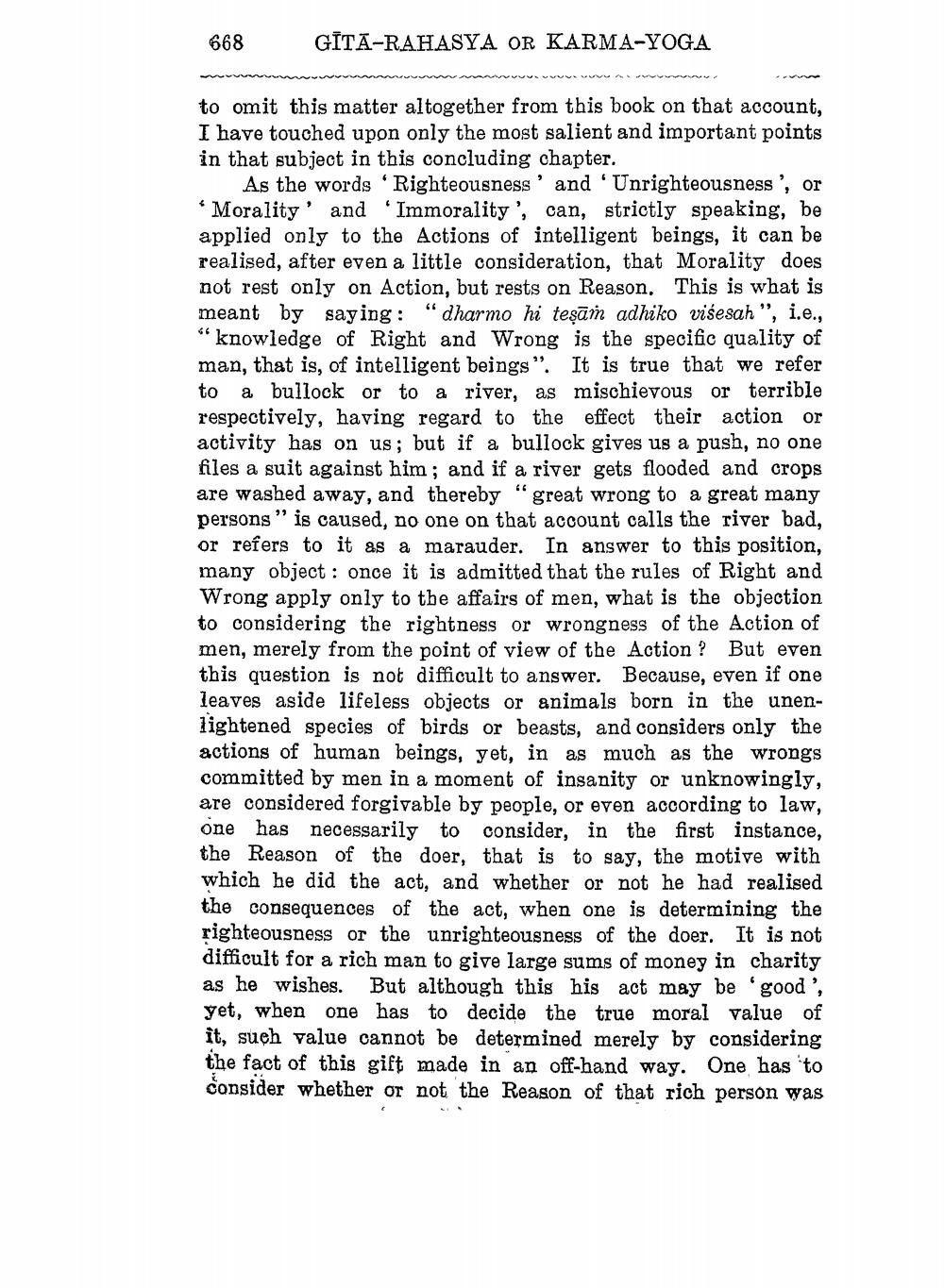________________
668
GĪTĀ-RAHASYA OR KARMA-YOGA
to omit this matter altogether from this book on that account, I have touched upon only the most salient and important points in that subject in this concluding chapter.
As the words 'Righteousness' and 'Unrighteousness, or * Morality' and 'Immorality', can, strictly speaking, be applied only to the Actions of intelligent beings, it can be realised, after even a little consideration, that Morality does not rest only on Action, but rests on Reason. This is what is meant by saying: "dharmo hi teşām adhiko višesah", i.e., "knowledge of Right and Wrong is the specific quality of man, that is, of intelligent beings". It is true that we refer to a bullock or to a river, as mischievous or terrible respectively, having regard to the effect their action or activity has on us; but if a bullock gives us a push, no one files a suit against him; and if a river gets flooded and crops are washed away, and thereby "great wrong to a great many persons" is caused, no one on that account calls the river bad, or refers to it as a marauder. In answer to this position, many object : once it is admitted that the rules of Right and Wrong apply only to the affairs of men, what is the objection to considering the rightness or wrongness of the Action of men, merely from the point of view of the Action ? But even this question is not difficult to answer. Because, even if one leaves aside lifeless objects or animals born in the unenlightened species of birds or beasts, and considers only the actions of human beings, yet, in as much as the wrongs committed by men in a moment of insanity or unknowingly, are considered forgivable by people, or even according to law, one has necessarily to consider, in the first instance, the Reason of the doer, that is to say, the motive with which he did the act, and whether or not he had realised the consequences of the act, when one is determining the righteousness or the unrighteousness of the doer. It is not difficult for a rich man to give large sums of money in charity as he wishes. But although this his act may be 'good', yet, when one has to decide the true moral value of it, such value cannot be determined merely by considering the fact of this gift made in an off-hand way. One has to consider whether or not the Reason of that rich person was




